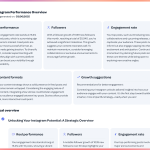The Boss Mind: Unlock Your Wealth Potential
Stop Thinking Like You Are Poor: A Revolution in Wealth Creation
Are you stuck in a cycle of financial struggle, feeling like wealth is always just out of reach? The groundbreaking new book, “Stop Thinking Like You Are Poor,” is poised to shatter those limitations. This isn’t just another self-help guide; it’s a radical reorientation of your financial mindset, designed to propel you from scarcity to abundance. If you’ve ever wondered why some people effortlessly attract wealth while others remain trapped, the answer lies not in their circumstances, but in their mindset. This article dives deep into the core principles of this transformative release and explores how you can begin to stop thinking like you are poor today.
The Poverty Mindset: A Hidden Barrier to Prosperity
For too long, the concept of a “poverty mindset” has been misunderstood. It’s not about the absence of money, but rather a collection of deeply ingrained beliefs, habits, and attitudes that perpetuate financial limitations. These thought patterns, often developed from childhood experiences, societal conditioning, or past failures, act as invisible walls, preventing individuals from recognizing and seizing opportunities for financial growth. Understanding these barriers is the crucial first step toward dismantling them.
Common Traits of a Poverty Mindset
- Constantly focusing on what you lack rather than what you have.
- Fear of taking risks or stepping outside your comfort zone.
- Believing that money is the root of all evil or that rich people are inherently bad.
- Living paycheck to paycheck with no long-term financial planning.
- Blaming external factors for financial shortcomings instead of taking responsibility.
- A scarcity mentality where you believe there isn’t enough to go around.
The “Stop Thinking Like You Are Poor” Philosophy: A New Paradigm
The central thesis of the new book is simple yet profound: your financial reality is a direct reflection of your internal dialogue and beliefs about money. To achieve financial freedom, you must first liberate your mind from the shackles of scarcity. This involves a conscious and deliberate shift towards an abundance mindset. It’s about recognizing your inherent worth and believing that prosperity is not only possible but your birthright.
The book promises to equip readers with practical tools and strategies to identify and reframe these limiting beliefs. It emphasizes that wealth creation is a skill that can be learned and a journey that begins with a single, powerful decision: to stop thinking like you are poor and start thinking like a wealthy individual.
Key Pillars of the Wealth Mindset Shift
Transforming your financial future requires more than just wishing for more money. It demands a fundamental reprogramming of your thought processes. The book outlines several critical pillars that form the foundation of this transformation:
1. Cultivating Gratitude and Appreciation
The journey to abundance begins with recognizing and appreciating what you already possess. Gratitude shifts your focus from lack to plenty, opening your mind to the possibilities that surround you. Regularly acknowledging your blessings, no matter how small, can profoundly alter your perspective and attract more positive experiences.
2. Embracing a Growth Mindset
A growth mindset, as popularized by Carol Dweck, is essential for financial success. This involves believing that your abilities and intelligence can be developed through dedication and hard work. Instead of seeing challenges as insurmountable obstacles, you view them as opportunities for learning and growth. This resilience is key to overcoming setbacks on the path to wealth.
3. Developing Financial Literacy and Education
Ignorance is a significant barrier to wealth. The book likely stresses the importance of continuous learning about personal finance, investing, and wealth-building strategies. Understanding how money works, how to make it grow, and how to manage it effectively is non-negotiable for anyone serious about financial independence.
4. Taking Inspired Action and Calculated Risks
Abundance is not passive. It requires decisive action. This means moving beyond mere planning and into execution. The book will likely guide readers on how to identify opportunities, overcome the fear of failure, and take calculated risks that can lead to significant financial rewards. It’s about being proactive rather than reactive.
5. Surrounding Yourself with Abundance
Your environment and the people you associate with have a powerful influence on your mindset. The book may advocate for consciously choosing to spend time with individuals who are financially successful, positive, and supportive. Likewise, curating your physical and digital spaces to reflect abundance can reinforce your new way of thinking.
Practical Strategies to Implement Immediately
The promise of “Stop Thinking Like You Are Poor” isn’t just theoretical; it’s about actionable steps you can take right now. Here are some strategies inspired by the book’s likely principles:
- Start a Gratitude Journal: Each day, write down at least three things you are grateful for.
- Identify and Challenge Limiting Beliefs: When you catch yourself thinking negatively about money, ask yourself if that belief is truly serving you and find evidence to the contrary.
- Set Clear Financial Goals: Define what financial success looks like for you and break it down into smaller, achievable milestones.
- Educate Yourself Daily: Dedicate 15-30 minutes each day to reading a book, listening to a podcast, or watching a video on personal finance or wealth building.
- Practice Frugality, Not Deprivation: Learn to spend wisely and save diligently, but don’t deprive yourself of experiences that enrich your life and fuel your motivation.
- Visualize Your Success: Spend a few minutes each day vividly imagining yourself achieving your financial goals and experiencing the freedom that comes with it.
The Impact of Shifting Your Perspective
When you successfully transition from a poverty mindset to an abundance mindset, the changes are transformative. You’ll notice:
- Increased confidence in your ability to create wealth.
- A greater openness to new opportunities and ideas.
- Improved decision-making regarding finances.
- Reduced stress and anxiety about money.
- A more positive outlook on life in general.
This shift isn’t about overnight riches; it’s about building sustainable wealth through a fundamentally different approach to life and money. It’s about empowering yourself to take control of your financial destiny.
External Resources for Continued Growth
To further support your journey, consider exploring resources that delve deeper into financial literacy and mindset development. For instance, understanding the principles of investing can be a powerful tool. Websites like Investopedia offer comprehensive guides and explanations on various investment topics, from stocks and bonds to real estate and cryptocurrency. Additionally, exploring the concept of behavioral economics can provide valuable insights into how our minds make financial decisions, which can be found on resources like the websites of leading universities or reputable economic think tanks.
Conclusion: Your Wealth Journey Starts Now
The message is clear: the most significant barrier to your financial success isn’t external circumstances, but your own internal narrative. “Stop Thinking Like You Are Poor” is more than a book; it’s an invitation to a new way of living and thinking. By consciously choosing to adopt an abundance mindset, cultivating gratitude, embracing growth, and taking inspired action, you can dismantle the limitations that have held you back. The power to transform your financial future lies within you, waiting to be unleashed. It’s time to embrace your potential and build the life of prosperity you deserve.
Ready to redefine your financial future? Get your copy of “Stop Thinking Like You Are Poor” today and start your journey to wealth!
Copyright 2025 thebossmind.com






 * [Hollywood Reporter Article on AI in Film](https://www.hollywoodreporter.com/movies/movie-news/ai-hollywood-impact-actors-writers-1235678901/) copyright 2025 thebossmind.com](https://thebossmind.com/wp-content/uploads/1/2025/10/pexels-photo-30279766-4-330x220.jpeg)



 **External Link 2:** [The Future of the Metaverse](https://www.mckinsey.com/featured-insights/mckinsey-explainers/what-is-the-metaverse) copyright 2025 thebossmind.com](https://thebossmind.com/wp-content/uploads/1/2025/10/pexels-photo-17887854-3-330x220.jpeg)